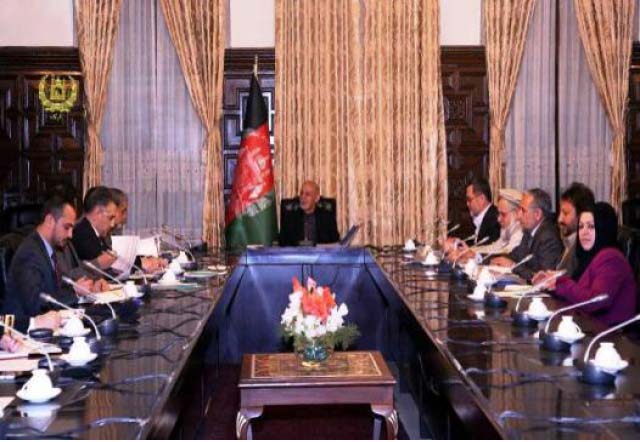According to a report, the security situation in Afghanistan deteriorated in the second half of 2015, with Taliban fighters staging more attacks and inflicting heavy casualties on Afghan forces. The grim perspective prompted Obama to scale back his drawdown plans, which had previously seen the United States drawing down to an embassy-based presence by 2017. “It’s time to immediately halt US troop withdrawals and eliminate any target date for withdrawal,” said Senator John McCain. He further pointed out that cutting US troop levels from 9,800 to 5,500 as planned could undermine efforts to both bolster Afghan forces and combat al Qaeda and Islamic State militants. It came as a top Brig. Gen. Wilson Shoffner, deputy chief of staff for communications, said earlier that Afghan forces got better in their performances in 2015, the Taliban were unable to hold ground. “And in almost every case, the Afghan security forces were able to retake the ground that the Taliban took, whether it was a roadway or a district center or key terrain. The Afghan security forces bounced back and retook that,” he said. He added that the best example of that was the fact that the Afghan security forces retook Kunduz City, with a population of over 300,000 people, just in a week.
On the other hand, however, a senior Pentagon official is quoted as saying, “The local forces need air support, intelligence and help with logistics. They are not going to be ready in three years or five years. You have to be there for a very long time.” According to him, there is a wide recognition in the Pentagon that building an effective Afghan army and police force will take a generation’s commitment, including billions of dollars a year in outside funding and constant support from thousands of foreign advisers on the ground. In spite of the fact that sustained efforts were made, billions of dollars were spent and hundreds of US soldiers lost their lives to combat militancy, Obama administration yet finds Afghanistan an unsafe country. “At this point it’s clear that it’s a very difficult situation in Afghanistan right now. It’s a dangerous country,” these words were spoken by White House Press Secretary Josh Earnest. “There’s also been a mission that US military personnel have undertaken that is focused on counterterrorism that has both an element of protecting the forces that are serving in Afghanistan, but also protecting the United States and our interests from extremist organizations that are operating in that region of the world.” It is beyond doubt that Afghan combatants and non-combatants suffered high causalities with the Taliban’s spring offensive and the withdrawal of US soldiers. As a result, total civilian deaths and injuries in the first quarter of 2015 followed the record high levels of 2014. Between January 01 and March 31, UNAMA documented 1,810 civilian casualties. Indeed, Afghanistan has remained a “dangerous country” and the civilians’ blood is spilled on the soil of their homeland despite the “war on terror” and NATO’s long presence in the country. However, the US politicians express contradictory ideas regarding the security situation in Afghanistan. The fact is that the political structure has turned fragile and Afghan nation is vulnerable to terror and militancy. In other words, the withdrawal of foreign forces, the Taliban’s heavy offensive and the emergence of the self-styled Islamic State of Iraq and the Levant (ISIL) all have put pressure on the country. Therefore, it is hard for Afghan soldiers to tackle the pressing challenges overnight. The White House has recently given the military broad authority to target Islamic State in Afghanistan. Lieutenant General John Nicholson said that the Taliban came at the Afghan forces “more intensely than perhaps we anticipated…. Because of that, we did not make the advances we projected we thought we would make.” Nicholson listed capability gaps within Afghan forces including in intelligence, air support and the evacuation of wounded forces from the battlefield. To mitigate the security challenges, Afghan officials seek to resume peace talk with the Taliban elements with the support of China, US and Pakistani officials. Pakistan’s Foreign Ministry said that representatives from Afghanistan, Pakistan, China and the United States will meet in the Pakistani capital Islamabad within days to discuss how to resume the stalled peace process between Kabul and the Taliban - it will be third such meeting in recent weeks. According to officials, Taliban representatives will be invited when the four countries reach some understanding on the overall roadmap. Resuming reconciliation process is the only hope for Afghan nation to alleviate militancy and political turmoil, though, it was proved abortive frequently. Comparing to the ISIL, it is a good opportunity for the Taliban fighters to welcome the open door of talk as a peace offering. There is no choice for the ISIL militants other than being dealt militarily and therefore come under heavy attacks. Afghan President also ordered the Ministry of Defense (MoD) earlier to keep bombing the members of ISIL. So, if the Taliban miss this opportunity, they will also fall in the same boat as ISIL. Reportedly, the Taliban have shown green light about peace talk, but the success of the talk is still foggy – as it did not come to fruition despite the sustainable efforts of Afghan-Pak officials within the past years.
Home » Opinion » The Political Instability
The Political Instability
| Hujjatullah Zia

